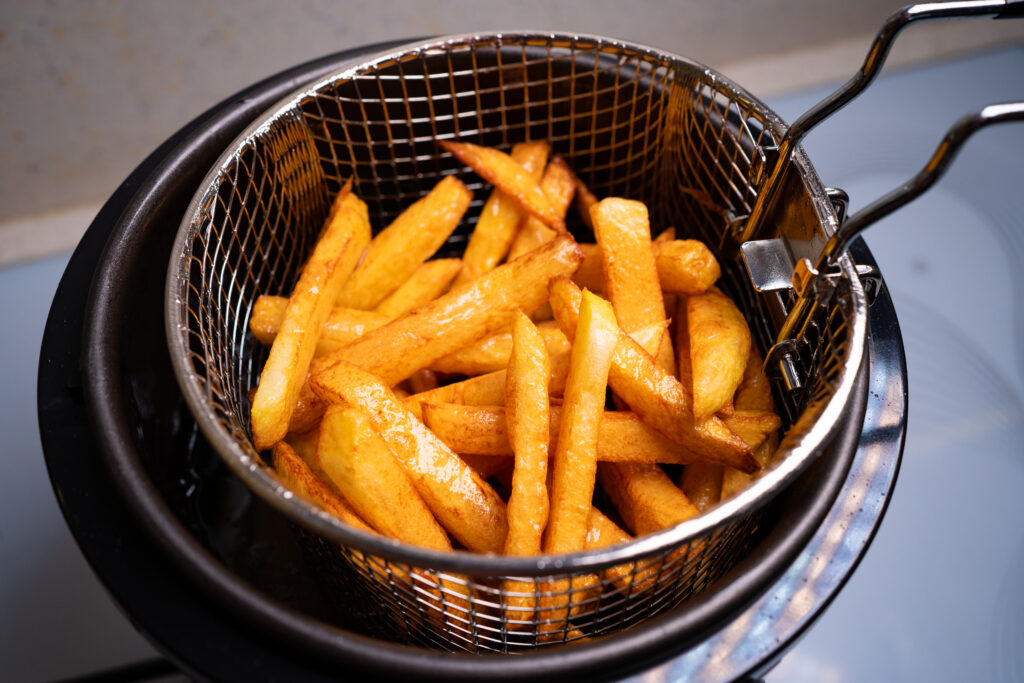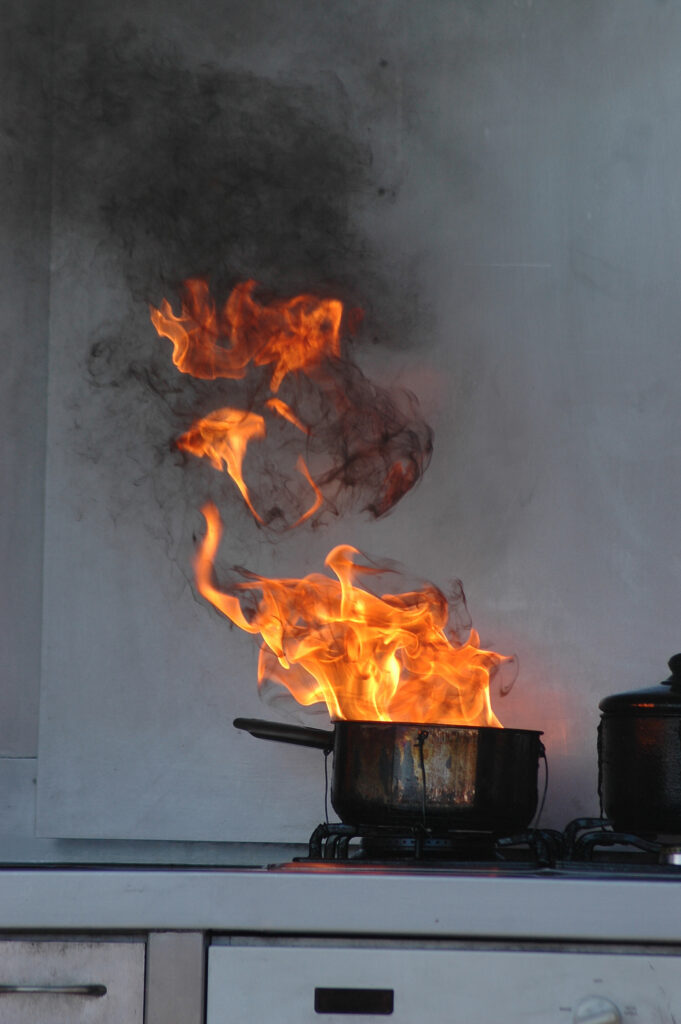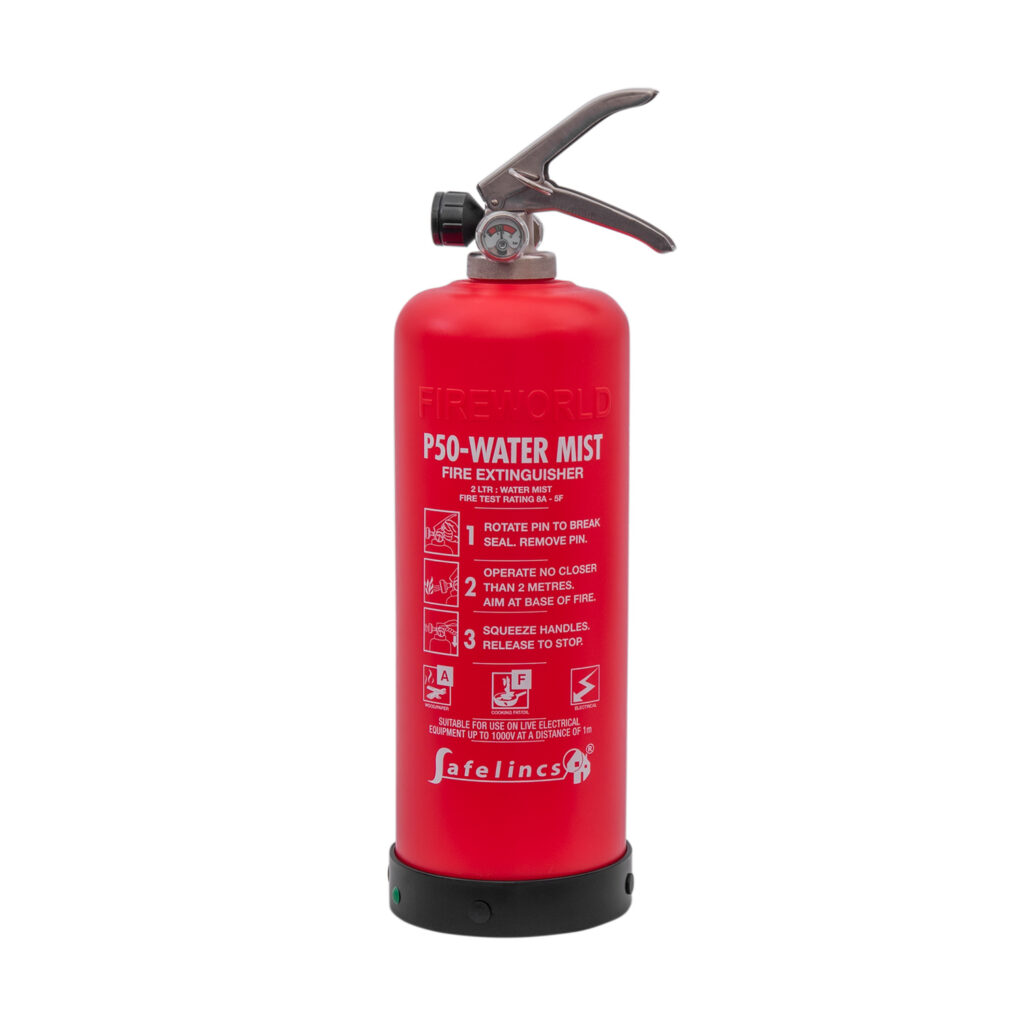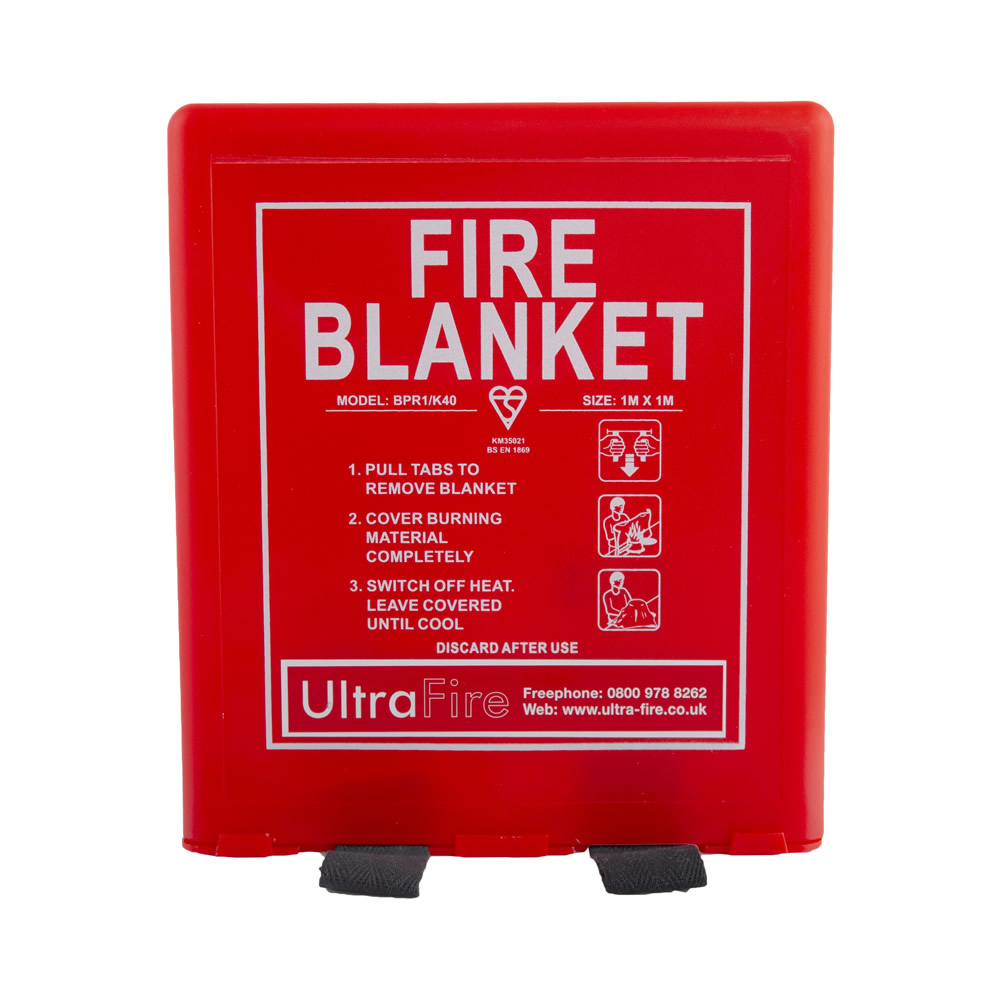Monday 22nd July 2024

Chip pans, or deep fat fryers, are the leading cause of injury from home fires in the UK. Nearly 20 people are killed or injured every day by chip pan fires. These cause damage to homes, and severe burns to users.
Why are chip pans dangerous?
Chip pans are dangerous because they use large amounts of heated oil to cook food. Fires can happen if the oil in the pan becomes too hot and catches fire. They can also start if the oil splashes or spills onto the hob. Either of these can happen very quickly, and are very difficult to prevent.
This is incredibly dangerous because cooking oil fats cannot be extinguished with water. Attempting to do so can cause the burning oil to splash and spread, and can even cause explosions. Watch this video to see what happens when water is added to a cooking oil fire.
The risk of chip pan fires becomes even higher when they are used in households with children and pets, by adults who have been drinking, or when they are left unattended.
Water Mist Extinguishers on Class F Fires
Do not try and put out a chip pan fire with a standard water extinguisher, as it can cause splashing. However, small Water Mist fire extinguishers for household or small kitchen use often have F class ratings. Because water mist extinguishers dispense de-ionised water in microscopic droplets through the special nozzle, they prevent splashing. This makes them suitable for use on hot cooking oil.
To extinguish a chip pan fire, apply the fine spray to the blaze in slow circular movements. This allows the curtain of water mist to fall gently onto the surface of the fire without causing the burning oil to splash and spread. The mist also cools the flames to extinguish the fire.
What to do if my chip pan catches fire?

If your chip pan or deep fat fryer catches fire, do not attempt to put it out with water. Where you have a fire blanket or F Class fire extinguisher in the kitchen, and it the fire is still contained within the pan, you may attempt to extinguish the blaze.
If the fire has already begun to spread, or an attempt to safely extinguish it is unsuccessful, evacuate the building and call the emergency services immediately. Do not stop to collect your belongings – chip pan fires can spread very quickly and you may become trapped in the burning building.
How to use a fire blanket
- If you need to use a fire blanket, turn off the heat source if it is possible to do so.
- Pull the black dangling tapes downwards to release the fire blanket from its container.
- Wrap the corners of the blanket around your hands to protect them from the fire, then place the blanket over the object that is on fire.
- Leave the blanket in place until the fire is out and the object is cool.
Read more about how to use a fire blanket.


How to reduce the risk of chip pan fires?
The best way to reduce the risk of chip pan fires is not to use them at all – opting for oven cooked chips or using an air fryer is a much safer option. Particularly if you are under the influence of drugs or alcohol, the safest option is to order takeaway chips.
If a chip pan or deep fat fryer is being used, here are some ways to mitigate the risks:
- Read the instructions carefully – ensure you do not over fill the pan
- Have a working heat detector in your kitchen, and working smoke alarms throughout your home to alert you to fire quickly – these should be tested regularly
- Fit a Class F fire extinguisher – water mist or wet chemical units can be used on chip pan fires
- Install a fire blanket in the kitchen
Ensure that the chip pan has the full attention of a responsible adult when in use – this equipment should never be used by children, or adults who are under the influence of alcohol or drugs.
Improving fire safety in the home
Chip pans pose a significant fire risk, causing more than 20 fires a day in the UK alone. However, this is not the only way that home fires can start. To learn more about fire risks in your home, and how to reduce them, use our free Home Fire Safety Check tool. This quick survey provides personalised tips and advice tailored to your home and its occupants.
You can also read more information about cooking oil fires in our blog, or contact our friendly team on 0800 612 6537 for advice about the best fire-fighting equipment for your home.
